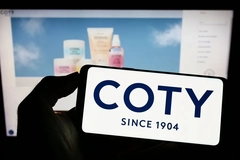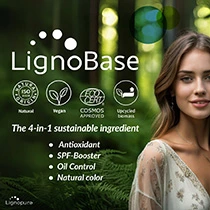Industry cheers EU Parliament’s CLP revision vote amid criticism of “slow progress” with chemical regulations
24 Apr 2024 --- Cosmetics and fragrance industry members welcome the EU Parliament’s (EP) vote to revise the Regulation on the Classification, Labelling and Packaging (CLP) of chemicals.
Sector representatives, Cosmetics Europe and the International Fragrance Association (IFRA) believe the text will streamline commercialization for natural ingredients used in cosmetics and fragrances.
“We are pleased that the trilogue negotiations have produced an agreement that puts to the fore the need for clear scientific grouping of substances for harmonized classification and labeling,” says Aurelie Perrichet, regional director for Europe at IFRA.
“It enhances legal certainty while making grouping workable, which is important given how much group restrictions will likely affect the perfumer’s palette.”
John Chave, director general of Cosmetics Europe, adds: “The revised regulation also includes specific provisions for the classification rules of substances with more than one constituent (‘MOCS’) derived from plants or parts of plants. This decision will support the future of the natural ingredients used in cosmetics and fragrances — helping to meet bio-economic, social and competitiveness goals.”
Out of REACH
This is the last session before the June parliamentary elections, so adopting the revised CLP Regulation is one of the final priorities for the current term.
Industry members expected the REACH (Registration, Evaluation, Authorisation and Restriction of Chemicals) Regulation would be revised after the CLP revision as part of the broader inclusion in the EU Chemicals Strategy for Sustainability (CSS).
 The revised regulation is expected to support the future of the natural ingredients used in cosmetics and fragrances.However, now that the EU Institutions will be reelected, the personal care associations believe the REACH rework will most likely have to wait until the next mandate.
The revised regulation is expected to support the future of the natural ingredients used in cosmetics and fragrances.However, now that the EU Institutions will be reelected, the personal care associations believe the REACH rework will most likely have to wait until the next mandate.
Personal Care Insights previously spoke to Pelle Moos, a chemicals expert at BEUC, the European Consumer Organisation, who discussed the impacts of the delayed REACH revision on the cosmetics industry.
The EU Commission (EC) was also lambasted over its 2024 working program, indicating animal rights failings and the delay in REACH revision. We spoke to the EC about its agenda.
“We believe it is key that, following the example of the CLP, further changes to the cosmetics and chemicals legislation support the competitiveness of the cosmetic and fragrance sectors while promoting sustainability of products,” says Chave.
Perrichet adds: “Boosting growth and competitiveness is in line with the recent draft conclusions of the Council of the EU and the widely supported Antwerp Declaration. Respectively, these call for a new European Competitiveness Deal and a European Industrial Deal.”
Last October, Cosmetics Europe and IFRA commended EP’s progress on CLP, including the new rules.
Slow progress on chemical protection
Contrasting industry advocacy of the new policy updates, the European Environmental Bureau (EEB) believes progress on chemical protections is “slow as the elections approach.”
 According to new research conducted by the EEB, only one of the thirteen major benchmarks outlined in the CSS has been fully achieved four years since it was introduced.“The EU is lagging in its commitment to ‘significantly reduce’ people’s exposure to hazardous chemicals.”
According to new research conducted by the EEB, only one of the thirteen major benchmarks outlined in the CSS has been fully achieved four years since it was introduced.“The EU is lagging in its commitment to ‘significantly reduce’ people’s exposure to hazardous chemicals.”
According to new research conducted by the EEB, only one of the thirteen major benchmarks outlined in the CSS has been fully achieved four years since it was introduced.
Tatiana Santos, head of Chemicals Policy at the EEB, says: “As the EU approaches pivotal elections, the EEB calls on future leaders to prioritize the completion of the CSS. While the early steps of REACH 1.0 and the CSS were commendable, much work remains. The upcoming EP and EC must commit to building on this agenda and ensuring a safer, toxic-free future for all.”
Main message
The EEB report flags shortcomings in the REACH Regulation, noting that chemical companies often provide regulators with unreliable hazard data. Since there are few enforcement actions, it stipulates these companies are rarely punished.
Because of this lack of responsibility, authorities, manufacturers further downstream and consumers are all ignorant of the dangers connected to many currently used chemicals, it states.
The report urges appropriate action in response to the public “lacking awareness” of health and environmental risks, which are often underestimated.
The report highlights some regulatory progress regarding the CLP Regulation to enable new bans on hazardous chemicals alongside the “crackdown on endocrine-disrupting chemicals and PFAS.”
Impacts on chemical policy progress This week, EC presented guidance on limiting the most harmful chemicals to essential uses.As the EEB criticizes progress on chemical regulations, it acknowledges that a conference on chemical policies addressed the issue this week at the Belgian President’s office.
This week, EC presented guidance on limiting the most harmful chemicals to essential uses.As the EEB criticizes progress on chemical regulations, it acknowledges that a conference on chemical policies addressed the issue this week at the Belgian President’s office.
“[However,] the much-needed REACH reform has stalled, threatening progress across other areas,” notes the EEB. “The promise to stop the worst chemicals, those already banned in Europe, from being exported to world regions least able to deal with their impacts also remains unmet.”
The review concluded that industry lobbyists frequently cause “paralysis” among national and EU-level officials, who rarely take legal or financial measures against firms, even after proven health or environmental dangers.
“Once officials hastily approve new chemicals based on incomplete use and hazard data, it often takes ten years or longer to bring dangerously uncontrolled chemicals under control, at significant public expense,” warns EEB.
Simultaneously, EC presented a “concrete deliverable of the CSS aiming to improve the protection of human health and the environment from the most harmful chemicals, and to move toward a toxic-free environment.” It outlines guidance on limiting the most harmful chemicals to essential uses.
“Essential use is yet another tool in our toolbox that can allow us to act faster in eliminating the most harmful chemicals to protect our health and the environment,” states Virginijus Sinkevičius, commissioner for Environment, Oceans and Fisheries.
“By adopting criteria and principles that define which uses of harmful chemicals are essential for society, we provide certainty to the industry and investors, but we also send a strong signal that there is no place for harmful chemicals if they are not essential for society. Safer and more sustainable alternatives exist, they shall now become the norm.”
By Venya Patel













